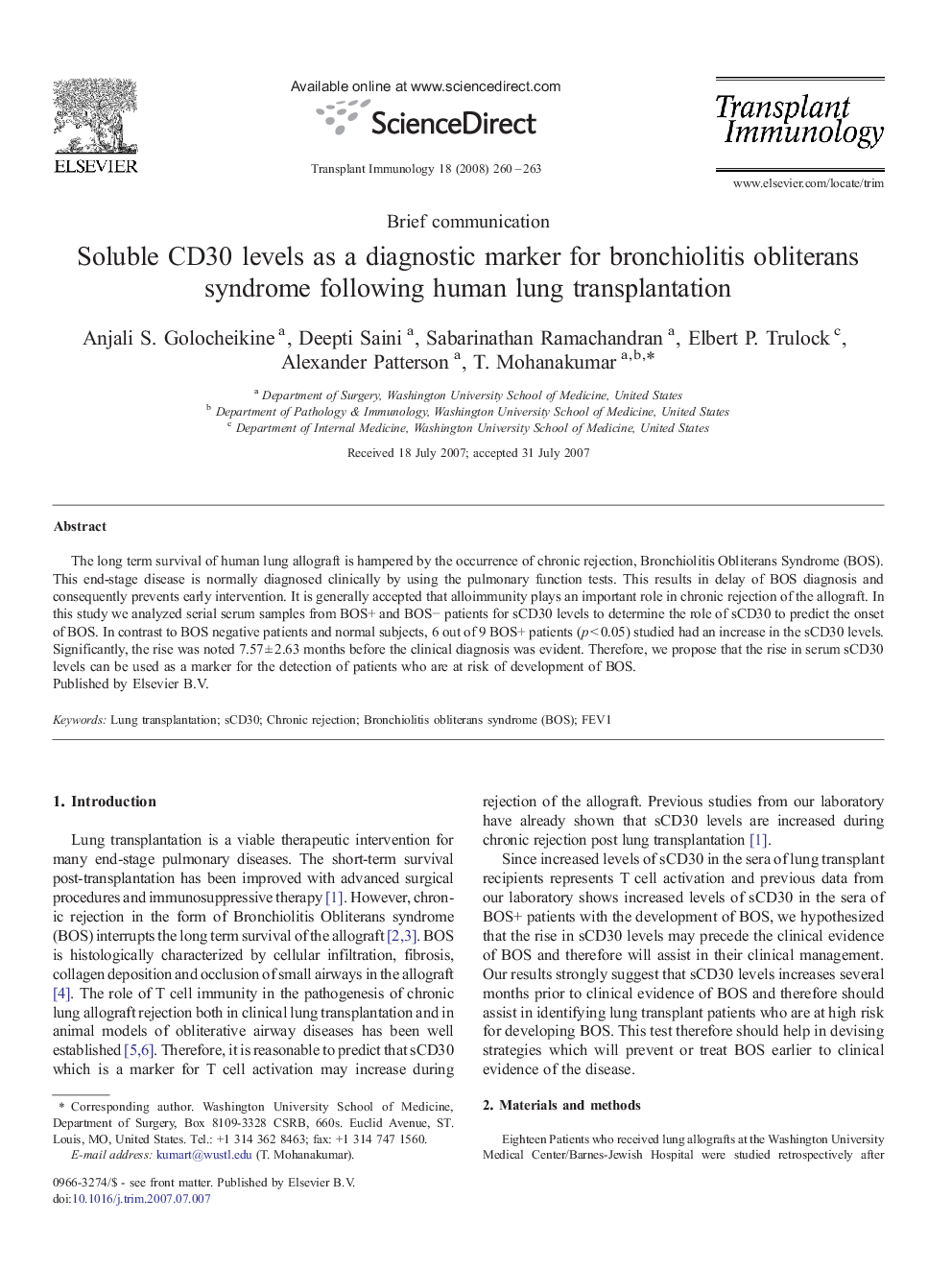| Article ID | Journal | Published Year | Pages | File Type |
|---|---|---|---|---|
| 3392411 | Transplant Immunology | 2008 | 4 Pages |
The long term survival of human lung allograft is hampered by the occurrence of chronic rejection, Bronchiolitis Obliterans Syndrome (BOS). This end-stage disease is normally diagnosed clinically by using the pulmonary function tests. This results in delay of BOS diagnosis and consequently prevents early intervention. It is generally accepted that alloimmunity plays an important role in chronic rejection of the allograft. In this study we analyzed serial serum samples from BOS+ and BOS− patients for sCD30 levels to determine the role of sCD30 to predict the onset of BOS. In contrast to BOS negative patients and normal subjects, 6 out of 9 BOS+ patients (p < 0.05) studied had an increase in the sCD30 levels. Significantly, the rise was noted 7.57 ± 2.63 months before the clinical diagnosis was evident. Therefore, we propose that the rise in serum sCD30 levels can be used as a marker for the detection of patients who are at risk of development of BOS.
